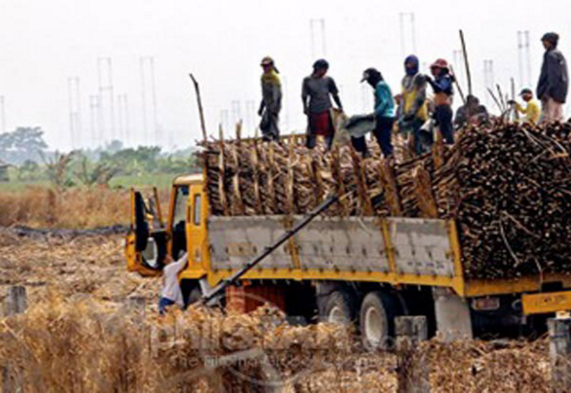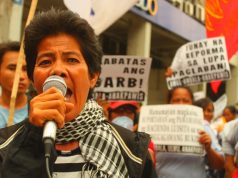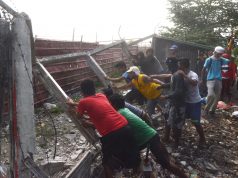MANILA, Philippines – An organization of agricultural workers is urging the Department of Agrarian Reform (DAR) to sue lessees or ariendadors including a firm linked to the families of former President Benigno Aquino III and former Agriculture Secretary Luis “Cito” Lorenzo for allegedly obstructing the implementation of land reform in Hacienda Luisita in Tarlac province.
In a statement issued Wednesday, April 26, Danilo Ramos, secretary general of the Unyon ng Manggagawa sa Agrikultura (UMA), urged DAR chief Rafael Mariano to “press charges” against the lessees that included Agrikulto Inc.
Agrikulto was acquired by Central Azucarera de Tarlac (CAT), Inc. in November 2015 for P65.6 million to expand CAT’s inventory of sugar farmlands and raise its milling input.
CAT’s president and chief operating officer is Fernando Ignacio Cacho Cojuangco, cousin of former President Noynoy Aquino. Among the siblings of Fernando’s father, Pedro Sumulong Cojuangco, are Jose “Peping” Cojuangco and the late President Cory Aquino.
CAT’s chairman and chief executive officer is Martin Ignacio Paez Cojuangco, brother of Luis “Cito” Lorenzo, the chief of the Department of Agriculture during the Arroyo administration.
Agrikulto was bought by CAT from North Star Estate Holdings, Inc., whose chairman is also Fernando Ignacio C. Cojuangco.
According to Ramos, it was Agrikulto that hired sacadas from Mindanao to work in Luisita and other parts of Central and Northern Luzon.
He claimed that the firm had described itself in its employment contract with the sacadas as the owner, leaser, and manager of sugarcane lands in Hacienda Luisita, Gapan, Armenia, and Apalang.
Citing a March 6-7, 2017 validation report from the DAR, UMA claimed that land reform had failed in Luisita because the lessees such as Agrikulto were the ones who had allegedly benefitted from the vast landholding instead of the farmer-beneficiaries who should have directly managed the hacienda after the Supreme Court ordered the DAR during Noynoy Aquino’s administration to distribute the land to its tillers.
Out of the 5,301 farmer-beneficiaries of Luisita, 2,800 had illegally leased or mortgaged their land, another 600 sold their lots to third-party buyers and 200 took part in joint venture agreements, UMA said, citing DAR data.
The Comprehensive Agrarian Reform Law prohibits for 10 years the sale or transfer of agricultural landholdings after the distribution of farms to beneficiaries of the government’s agrarian reform program, according to Ramos.
The supposed actual land distribution of the hacienda started in 2013 under then DAR Secretary Virgilio delos Reyes, a year after the Supreme Court ruled in distributing Luisita to farmworkers.
“There can only be genuine agrarian reform in the country when the farmers and farm workers have actual control over the lands and lessees are actually charged for obstruction of land reform,” Ramos said.
He said he was hoping that the DAR’s position against lessees or ariendadors of Luisita would result in filing charges against them “to correct previous injustices against the farmworker-beneficiaries” of the hacienda.






